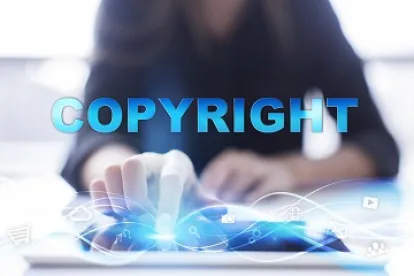The U.S. Supreme Court held today that bringing a suit for copyright infringement requires that the infringed work actually be registered with the U.S. Copyright Office, and that a mere application for registration will not suffice.
The ruling makes it even more imperative that copyright holders register their works promptly if they wish to enforce their rights—on top of the already considerable financial incentives that the U.S. copyright regime provides for registered works.
While expedited registration at the Copyright Office remains available to copyright claimants for a fee, the Court’s new ruling is most likely to impact copyright holders for whom a delay of even a few weeks in bringing suit could prove irreparable—particularly those seeking temporary restraining orders or other preliminary injunctive relief.
The Supreme Court’s Holding: Registered means registered, not applied-for.
17 U.S.C. § 411 generally requires that any copyright claimant must have registered or preregistered their copyright with the U.S. Copyright Office before they can bring suit.
Except for an action brought for a violation of the rights of the author under section 106A(a), and subject to the provisions of subsection (b), no civil action for infringement of the copyright in any United States work shall be instituted until preregistration or registration of the copyright claim has been made in accordance with this title. . . .
17 U.S.C. § 411(a). Note that there are exceptions to §411(a) for “moral rights suits,” recorded live broadcasts (carved out under 17 U.S.C. §411(b)), and foreign works, which need not be registered domestically in order to sue under the Berne Convention, (but which, like U.S. works, must generally be registered to obtain statutory damages and attorneys’ fees under 17 U.S.C. § 412).
The question for the Supreme Court in Fourth Estate Public Benefits Corp. v. Wall-Street.com was directed to a long-standing Circuit split about when a work is considered “registered:” at the time that a registration is filed with the Copyright Office (which serves as the “effective date of registration” once the registration is actually processed) or at the time that the registration has actually been processed by the Copyright Office and thus formally “registered?.
Justice Ginsburg, writing for a unanimous Supreme Court, held that only after the application has been “registered” and issued by the Copyright Office—a process that can take months—may a plaintiff bring a lawsuit to enforce its copyrights:
As explained supra, at 4–7, the “specific context” of §411(a)permits only one sensible reading: The phrase “registration . . . has been made” refers to the Copyright Office’s act granting registration, not to the copyright claimant’s request for registration.
Slip op. at 8. The Supreme Court pointed out that the existence of various exceptions to the “registration” requirement of § 411 – for example, the availability of suit for works that are subject to “preregistration” under § 408(f) (for works at particular risk of pre-distribution infringement), and the exceptions for live broadcasts – pointed toward a view of registration as the termination of an ongoing process for which interim relief might be needed.
Justice Ginsburg’s opinion pointed out that §411(a) includes an exception allowing suit in the event that a plaintiff’s application for copyright registration is denied—a condition which could only be known at the end, rather than the beginning, of the registration process. See, e.g. slip op. at 5 (“If application alone sufficed to ‘ma[ke]’ registration, §411(a)’s second sentence—allowing suit upon refusal of registration—would be superfluous”).
The Process of Copyright Registration: Months for $55, weeks for $800.
While registration of a copyright through the Copyright Office’s website generally costs $55 in government fees, and can cost as little as $35 for sole authors, the average processing time for registration is typically around 6-7 months. Alternatively, plaintiffs in urgent need of a registration (e.g., for litigation purposes) can pay $800 for expedited processing (with an additional $550 for the recordation of any document such as transfers of title) for a processing period likely to take 1-2 weeks.
The Biggest Impact of the Court’s decision: Preliminary Injunctive Relief and TROs.
While most copyright claimants contemplating federal litigation may not balk at an $800 expedited registration fee, even the delay of one or two weeks may prove extremely prejudicial to copyright holders seeking a temporary restraining order or other preliminary relief.
For copyright claimants and prospective claimants who believe they may find themselves subject to such irreparable harm and potentially need preliminary injunctive relief from infringement, the impact of the Fourth Estate holding is clear: register early and register often--or else risk being stuck in limbo for weeks, unable to file suit, while your registration application is processed.
Remember: don’t just register your copyright later, register your copyright now!
Even for those copyright holders who may not need instant enforcement and can afford to wait the weeks-to-months for the Copyright Office to process their registration, it is worth remembering that the federal government provides overwhelming incentives to register copyrights quickly.
17 U.S.C. § 412 provides that in general (with certain exceptions for “pre-registered works,” recorded live broadcasts, and enforcement of authorial “moral rights”), only copyright holders who register their work prior to the commencement of infringement, or within three months of first publication of the work, are eligible for recovery of statutory damages and attorneys’ fees—categories of recovery so important that they are often near-prerequisite to bringing a successful copyright action (and frequently crucial in ensuring that law firms will be interested in enforcing the copyright!).
Prompt registration of your copyright is thus already a crucial consideration; the Fourth Estate decision provides all the more reason to file for and obtain registration earlier rather than later.





 />i
/>i

